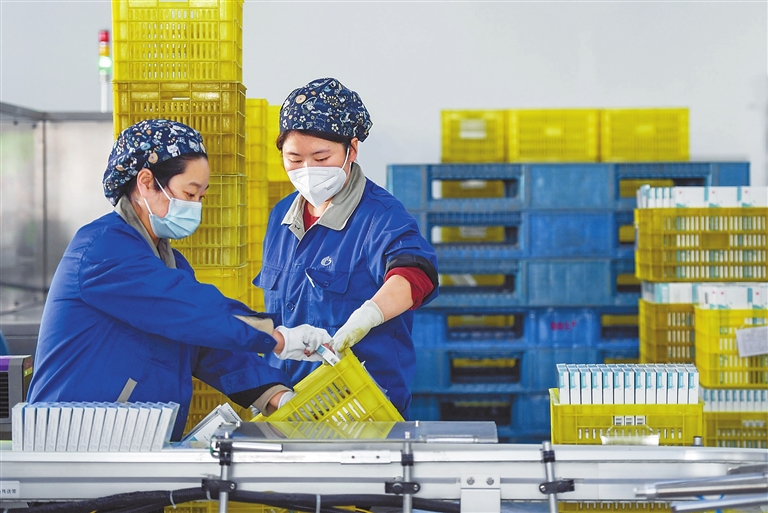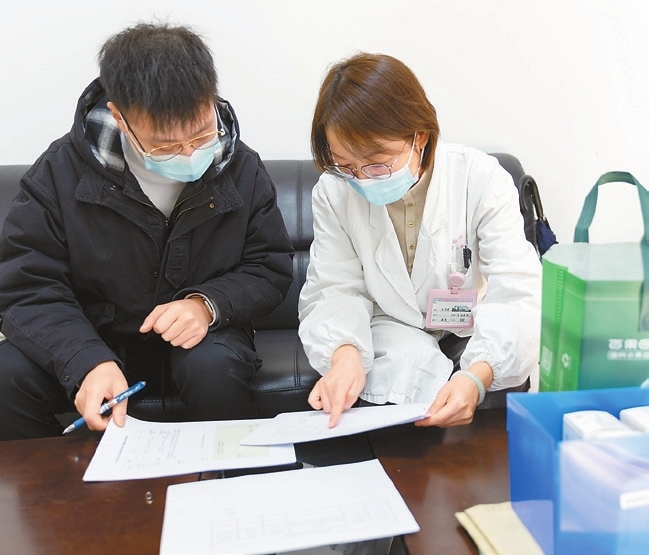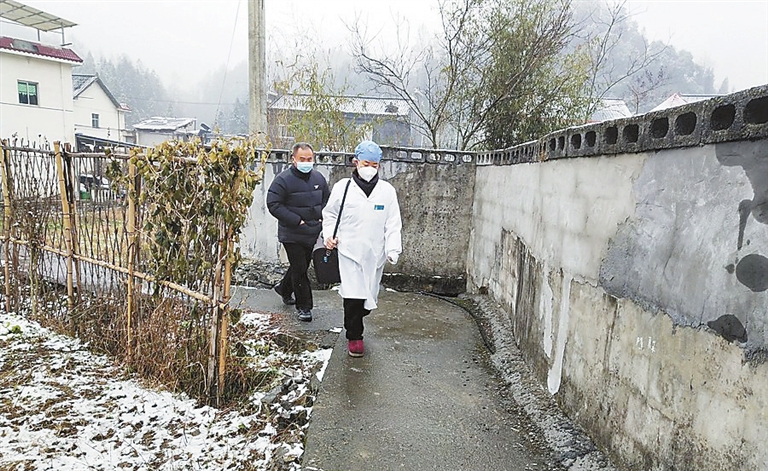


CHINA is making every effort to accelerate drug development, production and supply to cater to the needs of COVID-19 patients, as the country modifies its epidemic response policy. Weakened pathogenicity of the virus, a high vaccination rate and the experience acquired in prevention and control, have allowed China to optimize its COVID-19 policies this winter. The focus of China’s epidemic response has shifted from preventing infections to improving treatment of severe cases. The shift has seen a surge in demand for relevant drugs, both from self-quarantined patients at home and from severe cases being treated in hospital. More options Chinese drug researchers and developers have been racing against the clock to find the right medicine to beat the virus in two directions: biological macromolecular drugs based on antibodies and small molecular compounds that can inhibit virus entry and replication. A China-developed oral antiviral agent called VV116, which is a potent anti-COVID-19 drug, has been proven as effective as Pfizer’s Paxlovid in speeding up clinical recovery, and it has shown improved performance during the early onset of Omicron infections, according to a study recently published in the New England Journal of Medicine. China has kept seeking more options. Its drug regulator has granted conditional approval for the import of the Paxlovid COVID-19 pill. It has also activated special approval procedures and granted conditional approval for the import registration of Merck’s COVID-19 treatment Molnupiravir — for adult patients with mild to moderate symptoms and a high risk of progressing to severe cases. The small-molecule oral drug can be given to patients who, for instance, are elderly, overweight, or have chronic renal diseases, diabetes, severe cardiovascular diseases, and chronic lung diseases. Traditional Chinese Medicine (TCM) has also been widely applied and has shown unique benefits in the treatment of COVID-19 infections. For those with severe symptoms, integrated treatment with Chinese and Western medicines can effectively prevent the disease from becoming more severe or slow the progression of more severe symptoms, thus reducing the fatality rate, said Huang Luqi, deputy head of the National Administration of Traditional Chinese Medicine, at a recent national media conference. Beefing up supply To target the classic symptoms of COVID infection, China has improved its production capacity for fever and pain relievers ibuprofen and paracetamol. The country’s daily production capacity of ibuprofen and paracetamol has exceeded 200 million tablets, while the daily output reached 190 million. In addition, the maximum daily output of children’s antipyretic medicine has reached 1.12 million bottles. There are 194 types of antipyretic, antitussive, antibacterial and antiviral drugs on the Chinese market. Enterprises have increased drug development and distribution efforts. Jilin Natu Pharmaceutical Co., Ltd. has developed and manufactured new products which assist in enhancing patients’ immunity, treating a fever, detoxifying and reducing inflammation. A pharmaceutical company in Zibo city, East China’s Shandong Province, has increased its production capacity by more than 60% by adding production lines for COVID-19 drugs. Medical enterprises in the northwestern Gansu Province’s Minxian County, home to TCM herbs, are working hard to produce highly demanded medicines, such as those treating coughs. At present, the daily output of major herbal medicines for COVID-19 symptoms in this region totals 150,000 boxes. The daily output of TCM preparations reaches 200,000 bags. Smooth distribution China is paying special attention to drug distribution and emergency reserves for elderly people and for people in rural and remote areas, as it optimizes its COVID-19 response. Village doctors play an important role in this regard. Yang Pengcheng, a rural doctor in Baoding, North China’s Hebei Province, has been on a tight schedule lately, delivering medicine to 50 or 60 households daily to treat COVID-19 patients. Yang begins his day by decocting TCM according to the formula recommended by the county’s health bureau, with variations in the ingredients based on each patient’s symptoms. After that, the veteran doctor embarks on a long trip, delivering the boiled TCM remedies to the patients from house to house. He also carries his usual medical bag with antipyretic medicines, and his sphygmomanometer, pulse oximeter, thermometer and stethoscope, to check the patients’ health conditions. “Not so long ago, my whole family contracted COVID-19. So I called our village doctors, and they brought us TCM decoctions and other Western medicine,” said Yang Shaokun, a villager. In Baoding, there are more than 7,700 rural doctors like Yang. In Zhujiayu Village alone, 12 rural doctors provide health care services to more than 6,500 villagers, including over 600 aged 65 and above, many of whom have difficulty walking. Grassroots units of the government and other agencies have been mobilized to deliver medicines and help patients in need. In Fuzhou, capital of Southeast China’s Fujian Province, government and community workers delivered care packages containing ibuprofen and other medical supplies to vulnerable groups such as seniors living alone. Online distribution of medical supplies via e-commerce platforms has been launched in 11 provincial-level regions, benefiting over 2 million patients — most of whom are in remote rural areas. The country has also strengthened cross-region transfers of medical supplies. By Dec. 28, 2022, over 174 million ibuprofen tablets and 60 million paracetamol tablets had been allocated to hard-hit areas across the country. (Xinhua) | 
